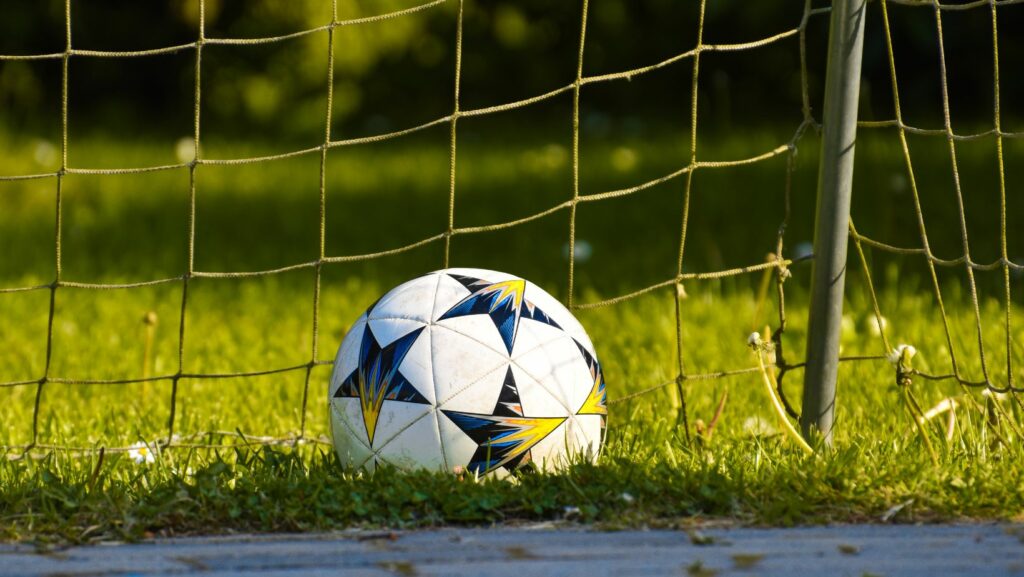Soccer Ball Storage
If you have a soccer ball, it’s important to know how to store and care for it properly. Depending on the type of soccer ball, you’ll need to store it in a certain way. For example, if you have a youth soccer ball, you’ll need to store it differently than an adult soccer ball. In this article, we’ll give you some tips for storing and caring for your soccer ball.
What size is a youth soccer ball
Properly inflating your soccer ball will help to maintain its shape and elasticity. You should inflate your soccer ball to the pressure specified on the ball (usually between 8.5 and 15.6 psi). If you don’t have a pump that can measure pressure, you can inflate the ball until it is firm, but not too hard. Be sure to check the PSI periodically, as a soccer ball can lose air over time.

Store your soccer ball in a cool, dry place
To keep your soccer ball in good shape, it’s important to store it in a cool, dry place. Soccer balls can develop mildew and mold if they’re stored in a humid environment, so avoid putting them in the attic or garage. If you have more than one soccer ball, rotate them so each one gets used equally.
You should also clean your soccer ball regularly. Remove any dirt and debris with a brush or cloth, and then treat the surface with a leather conditioner to keep it supple. Once or twice a season, you should also inflated your soccer ball to check for flat spots or cracks. If you find any damage, don’t try to repair it yourself — take it to a local sporting goods store for professional help.
Do not store your soccer ball in direct sunlight
Ultraviolet (UV) rays from the sun can damage the material of your soccer ball, causing it to degrade over time. If you must store your soccer ball in direct sunlight, do so in a cool, dry place. Ideally, you should store your soccer ball in a dark, temperature-controlled room.
Soccer Ball Care
Soccer balls must be taken care of in order to keep their shape and durability. The first thing to do is to know what size ball you have; a youth size ball is smaller than an adult size ball. Secondly, you must know what material the ball is made of; leather, synthetic, or a combination of both.

Clean your soccer ball after each use
To clean your soccer ball after each use, it is important to remove all the dirt, grass, and debris that may be on it. It is also important to clean your soccer ball in between uses to keep it looking its best. Here are some tips for cleaning your soccer ball:
-Remove all dirt, grass, and debris from the ball with a brush or a cloth.
-Rinse the ball with clean water.
-Use a mild soap or detergent if necessary.
-Rinse the ball again with clean water.
-Dry the ball with a clean towel or let it air dry.
Inspect your soccer ball for any damage
Inspect your soccer ball for any damage before storing it. If you see any cracks, cuts, or tears, it is best to replace the ball. It is also a good idea to clean your soccer ball before storing it. You can use a mild soap and a soft brush. Rinse the ball well after cleaning it.
Do not use harsh chemicals to clean your soccer ball
It is important to take care of your soccer ball if you want it to last long and perform at its best. Soccer balls are made of synthetic materials and stitching, so they are delicate and require special care. Here are some tips for storing and caring for your soccer ball:
-Do not store your soccer ball in direct sunlight or in a hot car. The heat will damage the material and cause the ball to lose shape.
-Do not use harsh chemicals to clean your soccer ball. A mild soap and water solution is all you need.
-Be sure to dry your soccer ball thoroughly after cleaning it.
-Store your soccer ball in a cool, dry place. A storage bag with a drawstring closure will help keep dust and dirt out.
Following these simple tips will help you get the most out of your soccer ball.